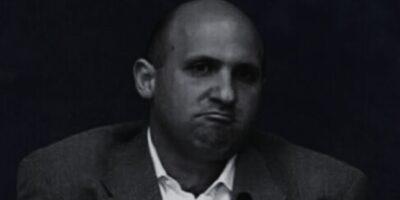Haitian-American community sees resurgence of voodoo practitioners
A Vodou devotee and graduate of the University of Massachusetts with a degree in Human Services and Economy, Guerline Petit has been in the United States for the last 10 years.
When she moved to the US, she put aside Vodou practices and started a new life. Until one day, the unthinkable happened. “I was doing a dual program at Harvard in Law and Visual Communication. While I was in a class I went into a trance. When I came to, I was surrounded by professors and students who looked at me strangely and with concern.”
When she moved to the US, she put aside Vodou practices and started a new life.
Over the last few years, there has been a noticeable increase in Haitian American adherents to the practice, using social media platforms to proudly showcase their affiliation to the religion. They also share their practices with others – on a quest to affirm their identity in a multicultural society and to dispel the stigma surrounding Vodou, which has long been demonized and ostracized around the world and in Haitian society.
Read also : Vodou stands out from the sexism of Christian religions
This phenomenon is not unique to the Haitian community. The African-American community has also observed a renewed wave of interest among some black women in witchcraft and the occult.
Following another episode, Petit felt driven to drop the Harvard program because she was ashamed and believed she was sick. But with the help of staff at the university, she was introduced to a Haitian psychologist and Vodou practitioner who helped with her condition.
This phenomenon is not unique to the Haitian community.
“I met Professor Jean Coulanges who taught me many things about Vodou. He gave me many books [and] introduced me to the person who would become my initiator in Vodou,” Petit tells AyiboPost.
Later, Petit returned to Haiti to have her initiation as a Manbo Asogwe (or a Vodou devotee trained to become an accomplished priestess).
The transition back to her roots clashes with misconceptions about the religion which has long been the center of mysticism for some and skepticism for others.
For Sabrina G. Valbrun, who has been practicing for 4 years, her journey back started as a Seventh Day Adventist Christian. She left Haiti when she was 10 years old and now runs a family business with her husband in West Palm Beach, Florida.
Until one day, the unthinkable happened.
“As a Christian, I learned nothing about my roots, where I came from, Valbrun said. Vodou keeps me grounded. I used to feel insecure. It makes me realize I am the master of my destiny, and I have the power to manifest.”
She has since left her Seventh Day Adventist church to embrace Vodou and created a Facebook group named Ayibobo Vodoun Sisterhood, along with a group of female friends, to educate others about Vodou.
Read also : Bel-Air remains an artist’s village, despite gang violence
The ubiquity of Christianity among Haitians plays a major role in this matter, where many come from backgrounds that vehemently reject Vodou.
For Natacha Descaze, a Lab Technician who grew up in church and arrived in the US at the age of 13, it was a professor’s remarks on the ancestral religion at college that led her to Vodou. She admits to reacting negatively at the time – coming from a background of seeing Vodou as a “dirty” practice.
The ubiquity of Christianity among Haitians plays a major role…
Since her newfound adherence to Vodou, Natacha says she has lost several friends, with family members no longer speaking to her.
As church members, her parents always rejected Vodou, seeing it as something evil, even though her family members in Haiti practiced it. This is a common occurrence among Haitian-American devotees.
When asked why Vodou is becoming more popular among third and fourth-generation Haitians born in the United States, Norluck Dorange, a Vodou devotee, attributes it to a kind of spiritual connection, and alluded to Vodou transcending religion by replicating itself wherever Haitians are.
According to a US government report, 50 to 80 percent of people in Haiti practice some form of Vodou mixed with elements of other religions.
Read also : Haiti’s local palm is in danger
Conversely, it is more difficult to determine the exact number of Haitians practicing Vodou in the United States. In 2001, there were an estimated 1.5 million adherents to Vodou in the US, notably in New Orleans, Chicago, Philadelphia, and Brooklyn; and in 2004, an estimated 60 million people practicing Vodou worldwide.
This is a common occurrence among Haitian-American devotees.
Haitian-Americans are not the pioneers of Vodou in the United States either. Vodou was brought to Louisiana by enslaved West Africans who, like Haitians and many other enslaved peoples from the Trans-Antlantic slave trade, combined their religious practices with the Catholic practices imposed by their enslavers. The arrival in New Orleans of Haitian escapees from the 1791 revolt did however have a major impact on the religion’s evolution in the country there forward.
Ancestral practices were never welcome in the new world.
Prior to emancipation, African spiritual practices were seen as acts of resistance and rebellion, and were met with legislation designed to restrict adherents from practicing. In the emancipation era, the US government also had laws that repressed Vodou, deploying general legislation rather than targeting Vodou outright.
Today, practicing Vodou in the United States does not come without its challenges for Haitian-American adherents.
Vodou was brought to Louisiana by enslaved West Africans…
The settings for ceremonies are not as they are in Haiti, and some of the products used in Haiti are not available in the US.
Devotees are also unable to openly perform animal sacrifices because they risk being prosecuted for animal cruelty.
Despite these obstacles, Haitian-Americans are finding ways to embrace Vodou.
Nathalie Baudin, a native of Gonaives and Gros-Mornes, is a co-founder and member of Ayibobo Vodoun Sisterhood. According to her, there are a lot of Vodou societies in the United States, notably in Miami and Orlando called Asogwe. Unlike Bizango or Chanpwèl, which are mystic secret societies, these are well-organized Vodou structures, she says.
Read also : The local variety of coffee disappearing in Haiti
While controversies surrounding Vodou continue to arise, Vodou practitioners are rarely indicted for fraud or for practicing medicine without a license.
Baudin does note the fact that people capitalize on the Asogwe rite and its initiation process. To be initiated, devotees must pay the Hougan or the Mambo between $10,000 and $12,000.
Cover photo : Drumming and dancing at a Vodou ceremony | © Pierre Michel Jean/VisitHaiti







Comments